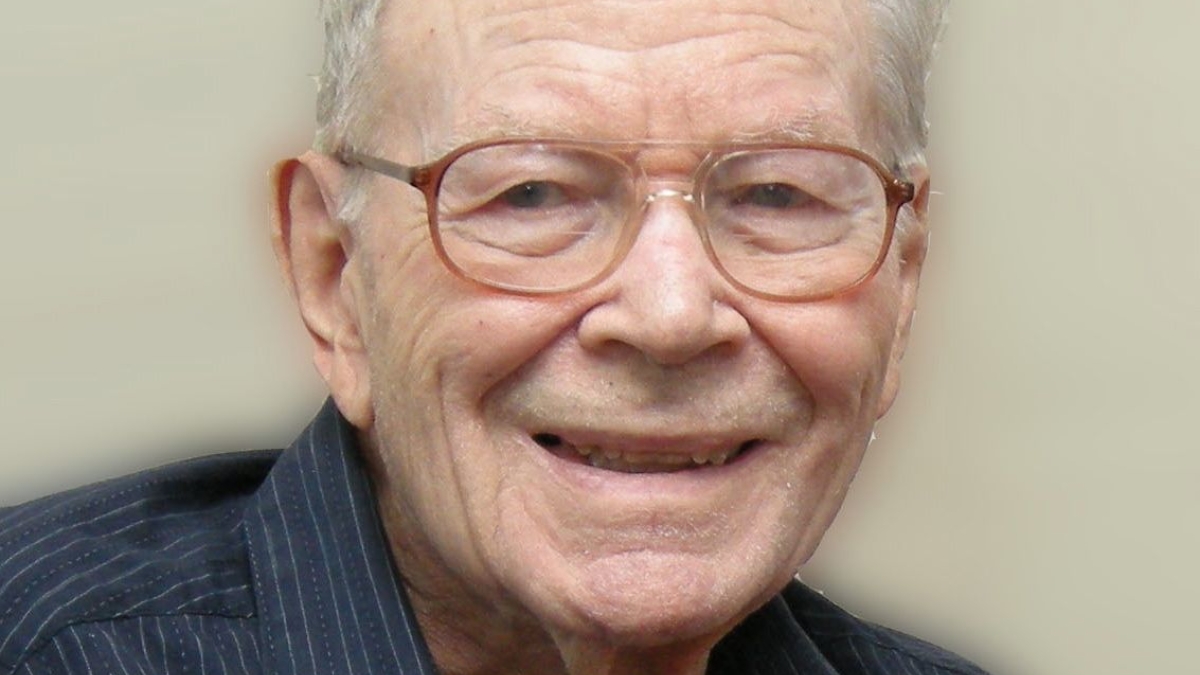Guy Dean McGrath: education visionary who loved students

When ASU President Grady Gammage asked Guy D. McGrath to leave his job at the University of Illinois and head ASU's education college, McGrath hesitated. He had a good job there – he was second in command of Illinois’ education department – and he knew that several current ASU faculty had their eye on the number one job.
But Gammage persuaded him to come, and McGrath later recalled that he made “several sweeping changes in organization and curricula, with Dr. Gammage’s support.”
Guy Dean McGrath, who is remembered as founding dean of ASU’s “modern” College of Education, passed away July 27, in Tempe. He was 97.
McGrath was born and raised on a farm in Lamar, Colo. He earned his undergraduate degree from Findlay (Ohio) College in 1934, where he met and married Zoe Bishop. McGrath completed his master’s degree at the University of Michigan, and in 1936 he and Zoe moved to Colorado, where he taught science at Lamar Junior College and then chemistry and sciences at Boulder High School.
During World War II, McGrath taught physics to Army air cadets in La Grande, Ore., before returning to Boulder as assistant superintendent of the Boulder Public School System. He earned his doctorate from the University of Colorado in 1946.
According to a biography of McGrath by Roy P. Doyle, who served as associate dean in his administration, those words describing “several sweeping changes in organization and curricula” that McGrath talked about were modestly spoken.
Doyle wrote, “During his 30-year tenure at ASU, 17 years as the administrative head of professional education, Dean McGrath carried many leadership roles embracing a wide spectrum of innovation and challenge.
“In addition to the strong, insightful influence which he provided the College of Education on this campus, he had a significant impact on teacher education at the national level and influenced the course of public education in Arizona in a variety of constructive ways.”
Doyle continued: “Dean McGrath was a leading force in the professional movement which reshaped teacher education in the post World War II period. He exerted his leadership through a variety of national associations. His impact on teacher education at the national level was also felt through his professional writing, research, consultative work with other universities and government agencies, and active participation in institutional accreditation.”
Under McGrath’s leadership, the mission of the ASU College of Education broadened to include emphasis on research and graduate study designed to prepare a wide range of practitioners in the field of education. ASU’s first doctoral program was developed in the College of Education under his supervision.
In 2002, the College of Education, with support from Phi Delta Kappa and the College of Education Alumni Chapter, created the McGrath Lecture Series to honor Dean for his visionary leadership and 70-year commitment to the field of education.
But McGrath’s commitment to the field of education went beyond programs and degrees. Doyle said, “One of his special gifts was his ability to help each to find and perfect his or her own professional niche. He accomplished this with the sensitivity and skill that is the mark of extraordinary leadership.
“Though he retired in 1980, hundreds of former faculty and student protégés scattered throughout the schools and universities of this country provide testimony to his continued influence on American education.”
McGrath is survived by his wife Zoe, their son, Larry, and his wife, Jane; their daughter, Linda McGrath Wiggs, and her husband, Richard; their grandchildren, Brian Wiggs and Jennifer Wiggs Yandell, and her husband, Scott; and their great-grandchildren, Dillan and Kate Yandell.
In lieu of flowers, the family suggests donations to Hospice of the Valley.